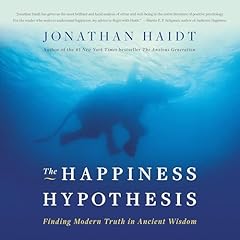
The Theory of Moral Sentiments
No se pudo agregar al carrito
Add to Cart failed.
Error al Agregar a Lista de Deseos.
Error al eliminar de la lista de deseos.
Error al añadir a tu biblioteca
Error al seguir el podcast
Error al dejar de seguir el podcast
Obtén 3 meses por US$0.99 al mes
 Exclusivo para miembros Prime: ¿Nuevo en Audible? Obtén 2 audiolibros gratis con tu prueba.
Exclusivo para miembros Prime: ¿Nuevo en Audible? Obtén 2 audiolibros gratis con tu prueba.
Compra ahora por $24.28
-
Narrado por:
-
Michael Lunts
-
De:
-
Adam Smith
‘How selfish soever man may be supposed, there are evidently some principles in his nature, which interest him in the fortune of others, and render their happiness necessary to him, though he derives nothing from it except the pleasure of seeing it.’
So begins The Theory of Moral Sentiments (1759), the first major text by Adam Smith, who, seven years later, was to publish what was to become one of the major economic classics, The Wealth of Nations (1776). However, Smith regarded The Theory of Moral Sentiments as his most important work because in it he identified the profound human instinct to act not necessarily in self-interest but through, as he phrased it, a ‘mutual sympathy of sentiments’.
The work is divided into seven parts, starting with Part 1: Of the Propriety of Action, in which Smith proposes the idea that ‘Sympathy’ can underlie human actions towards others, prompted by various emotions, be it perception of misfortune in others or simply ‘the pleasure of mutual sympathy’. Other parts include ‘Of the Effect of Utility upon the Sentiment of Approbation’, ‘Of the Character of Virtue’ and finally ‘Of Systems of Moral Philosophy’.
In this concluding section, Smith considers the views of other philosophers, including Epicurus, Zeno, Plato, Aristotle, Cicero and Hobbes, as well as the opinions of his mentor, Dr Francis Hutchison, an important influence. In short, Smith proposes that man’s sense of morality is interwoven with social instincts as much as reason or self-interest. Sympathy - the contemporary word we would use is empathy - is a universal and strongly held emotion in mankind, he says, imbued with virtue, prudence, justice and beneficence. The Theory of Moral Sentiments was, and remains, a milestone in Western philosophy.
Public Domain (P)2018 Ukemi Productions LtdLos oyentes también disfrutaron:




















Las personas que vieron esto también vieron:


















Great for aspiring philosophers
Se ha producido un error. Vuelve a intentarlo dentro de unos minutos.
What Makes Humans Humane
Se ha producido un error. Vuelve a intentarlo dentro de unos minutos.
just as relevant as The Wealth of Nations
Se ha producido un error. Vuelve a intentarlo dentro de unos minutos.
A Wonderful Description of Human Nature
Se ha producido un error. Vuelve a intentarlo dentro de unos minutos.
But the reading is good. This is a look at morality before even Freud incorrectly tried to unravel the mind and far before modern science dispatched with the will. The benefit here is to listen to some of the best 18th century rhetorical and unscientific musings about what we would call sociology and behavioral psychology. The medicine of the time still used blood letting, so one can’t judge too harshly. However, the real sentiment is that of “why do 18th century British feel they are superior?” And in that, the ideas are amusingly childish, but insightful.
Good Reading
Se ha producido un error. Vuelve a intentarlo dentro de unos minutos.


